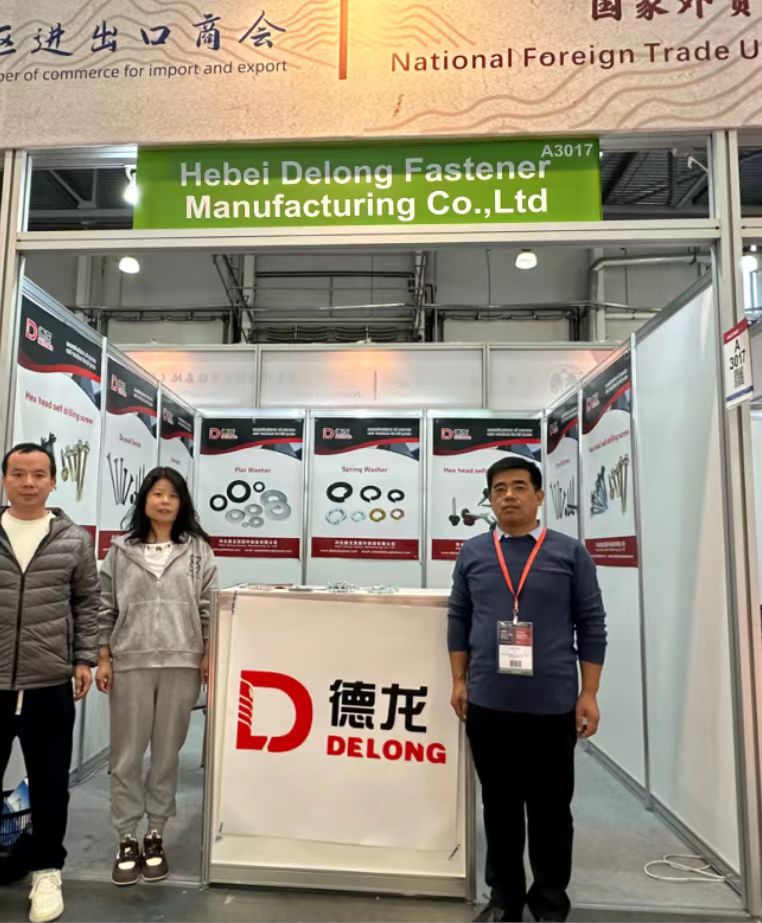self tapping screw shear strength
Understanding Self-Tapping Screw Shear Strength
Self-tapping screws are widely used in various industrial applications due to their ease of use and efficient fastening capabilities. One critical characteristic that determines their performance is shear strength, which refers to the screws' ability to resist forces that can cause them to fail by sliding past each other. Understanding the shear strength of self-tapping screws is essential for engineers and designers to ensure that assemblies remain secure under load.
What is Shear Strength?
Shear strength is a mechanical property that describes the maximum load a material can withstand when subjected to shear forces. In the context of self-tapping screws, shear strength is crucial because it affects the screw's ability to hold together materials without slipping or breaking. The shear force is applied perpendicular to the axis of the screw, and if the applied shear exceeds the screw's maximum shear strength, it could lead to failure.
Factors Influencing Shear Strength
Several factors influence the shear strength of self-tapping screws
1. Material Composition The type of material from which a screw is made significantly impacts its shear strength. High-carbon steel screws typically offer higher shear strength compared to softer metals. Additionally, coatings such as zinc plating can enhance corrosion resistance but may slightly affect mechanical properties.
2. Diameter and Thread Design The size of the screw also plays a vital role in its shear strength. Larger diameter screws generally provide greater shear resistance. Furthermore, the design of the threads can influence the load distribution and holding power, with deeper threads typically providing better grip.
self tapping screw shear strength

3. Installation Technique Proper installation is critical in maximizing shear strength. Over-torquing can lead to defects such as thread stripping or material deformation, ultimately reducing shear capacity. Conversely, under-tightening can also result in insufficient engagement, leading to potential failure under shear loads.
4. Material Being Fastened The shear strength of a self-tapping screw is also affected by the materials it is fastening. Softer materials may allow for a stronger hold, while harder materials may not provide sufficient anchoring for the screw’s threads.
Testing for Shear Strength
To ensure that self-tapping screws meet required performance standards, manufacturers conduct various tests to determine shear strength. These tests typically involve applying loads in a controlled environment until the screw fails. The data obtained helps in standardizing screws for specific applications and allows engineers to choose the right screw for their projects.
Practical Applications
In practical applications, understanding shear strength helps in selecting the appropriate self-tapping screw for tasks ranging from lightweight assembly to heavy-duty applications like construction and automotive manufacturing. Choosing the right screw based on shear strength ensures safety, reliability, and longevity of the assembled components.
Conclusion
In conclusion, shear strength is a fundamental property that directly impacts the effectiveness of self-tapping screws in various applications. By considering factors such as material composition, screw design, installation technique, and the materials being fastened, engineers can make informed decisions that enhance the integrity and performance of their assemblies. Understanding these principles ensures that self-tapping screws continue to be a reliable choice in fastening technology.
-
Top Choices for Plasterboard FixingNewsDec.26,2024
-
The Versatility of Specialty WashersNewsDec.26,2024
-
Secure Your ProjectsNewsDec.26,2024
-
Essential Screws for Chipboard Flooring ProjectsNewsDec.26,2024
-
Choosing the Right Drywall ScrewsNewsDec.26,2024
-
Black Phosphate Screws for Superior PerformanceNewsDec.26,2024
-
The Versatile Choice of Nylon Flat Washers for Your NeedsNewsDec.18,2024










